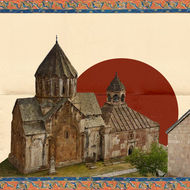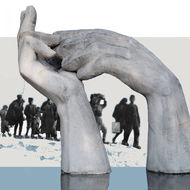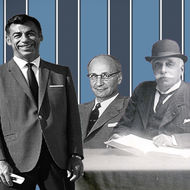
Hratch Tchilingirian
Articles by Hratch Tchilingirian
Sun Nov 22 2020
Christianity in Karabakh: Azerbaijani Efforts At Rewriting History Are Not New
In the context of the Armenian-Azerbaijani conflict, the “Albanian connection” has become a politicized issue of irredentism, hijacking the rich Christian heritage of Karabakh. The roots of this historiography go back to the Soviet policy of “nativization".
Tue Feb 06 2018
What is "Armenian" in Armenian Identity?
In the last 100 years, there have been hierarchies of identity and canonical approaches to definitions of "Armenian," especially as articulated, rationalized and promoted by elites, institutions and political parties in the Diaspora and in Armenia. This essay is not a study of identity per se, but about one of the aspects of identity – the “Armenian” bit of it.
Sat Sep 16 2017
Could Armenians Remain a Global Nation with a Broken Homeland?
Even as “Global Armenians” seem to be thriving around the world, they don’t appear to be thriving in the Republic of Armenia. Global Armenians, like the ocean-crisscrossing Armenian merchants of the 16th-18th centuries, contributed to vibrant Armenian communities around the globe, “preserving a nation is not the same as preserving a community,” writes Dr. Hratch Tchilingirian.





